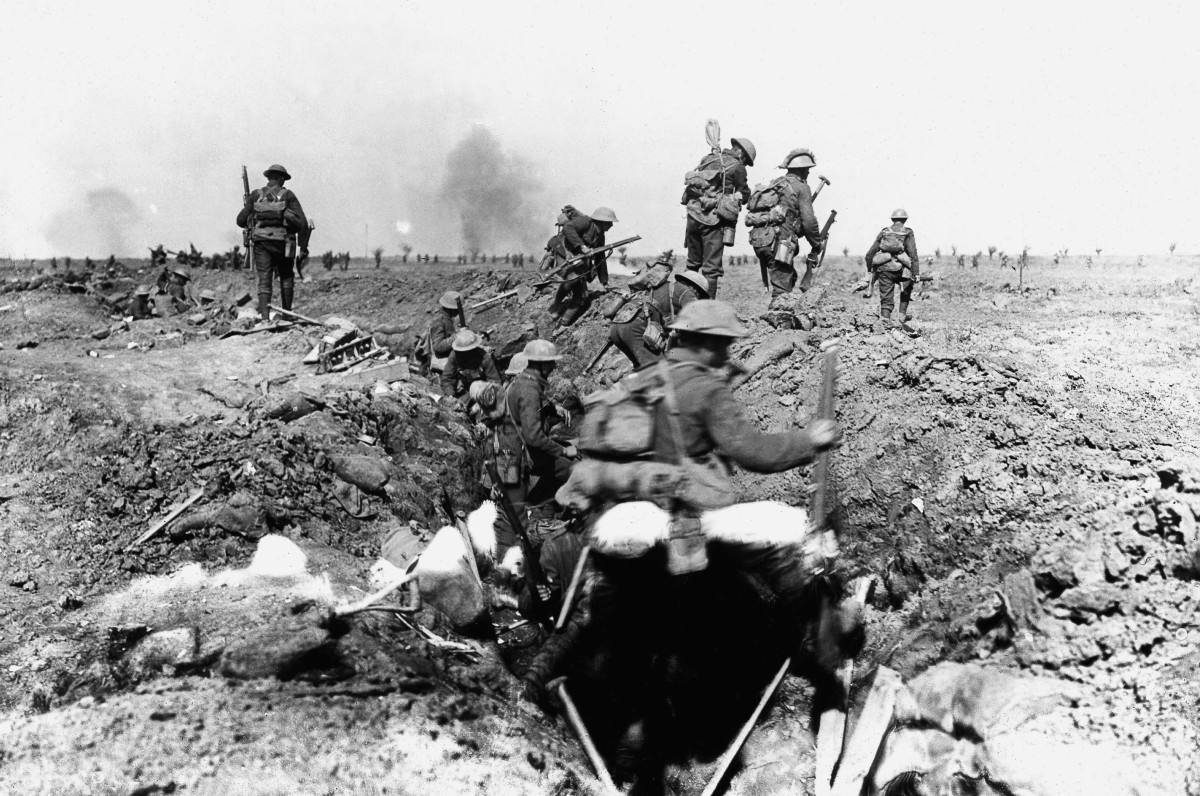The war in the trenches was unremitting tedium punctuated by moments of intense action. Long after the war a distinguished British historian, Charles Carrington (1897-1981), who was a young man on the Somme, wrote of his experience:
After a battle you buried your comrades and saw to it that their graves were marked with a wooden cross and a name. If you had time, and if it was not too dangerous, you did as much for other British dead. The enemy came last in priority, and more than once I have cleared a trench of its defunct tenants by throwing them over the parapet where someone might or might not find and bury them when the battle was over.
There were so many live inhabitants in the landscape as I saw it at Contalmaison in November 1916 that corpses had been cleared off everyone’s premises, unless you went up to the new front where it was too dangerous for burial-parties to work. But in rolling forward the armies left desert areas behind, where no one had either need or inclination CO go, in winter dreary beyond description, inhabited only by giant rats, fattened on corpse-flesh, in summer strangely beautiful with carpets of wild flowers and loud with skylarks. Clumps of scarlet poppies sprang up wherever the chalky subsoil had been disturbed by digging or by shell-fire. Long afterwards you could find corpses in nooks and corners of this wilderness… .
The killed and wounded were all lost by harassing fire, mostly on their way up or down the line. Once in position at Le Sars you could not show a finger by daylight, and by night every path by which you might be supposed to move was raked by machine-guns which had been trained on it by day. The entrance to the village, that is the gap in the ruins where the Bapaume Road passed through, the only way, by which you must pass, was under continuous shell-fire. If you could reach your funk-hole, and crouch in it, there was a fair chance of your coming out of it alive next day to run the gauntlet of the Bapaume Road again.
In your funk-hole, with no room to move, no hot food, and no chance of getting any, there was nothing worse to suffer than a steady drizzle of wintry rain and a temperature just above freezing-point. A little colder and the mud would have been more manageable. Life was entirely numbed; you could do nothing. There could be no fighting since the combatants could not get at one another, no improvement of the trenches since any new work would instantly be demolished by a storm of shell-fire.

